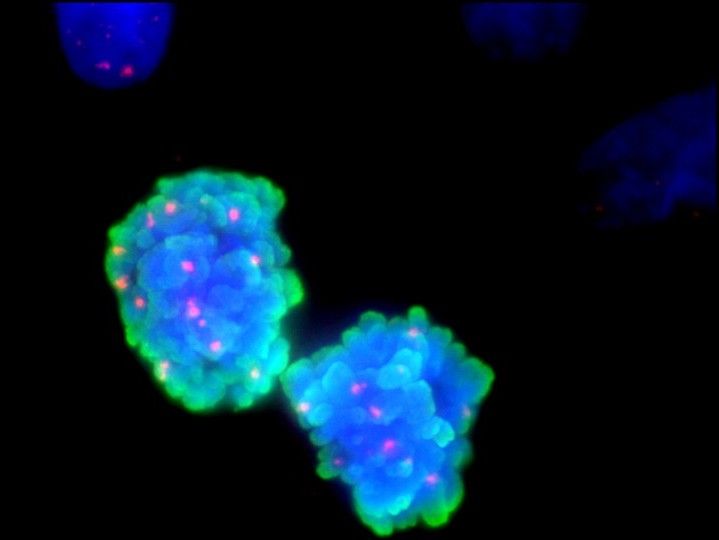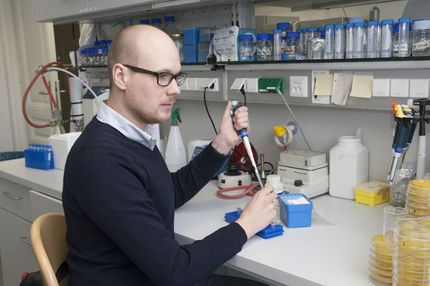Flying with fuel from sugarcane
A new promising biofuel feedstock
A Boeing 747 burns one gallon of jet fuel each second. A recent analysis from researchers at the University of Illinois estimate that this aircraft could fly for 10 hours on bio-jet fuel produced on 54 acres of specially engineered sugarcane.
Plants Engineered to Replace Oil in Sugarcane and Sweet Sorghum ( PETROSS ), funded by the Advanced Research Projects Agency - Energy (ARPA-E), has developed sugarcane that produces oil, called lipidcane, that can be converted into biodiesel or jet fuel in place of sugar that is currently used for ethanol production. With 20% oil - the theoretical limit - all of the sugar in the plant would be replaced by oil.
"Oil-to-Jet is one of the direct and efficient routes to convert bio-based feedstocks to jet fuel," said Vijay Singh, Director of the Integrated Bioprocessing Research Laboratory. "Reducing the feedstock cost is critical to improving process economics of producing bio-jet fuel. Lipidcane allows us to reduce feedstock cost."
This research analyzed the economic viability of crops with different levels of oil. Lipidcane with 5% oil produces four times more jet fuel (1,577 liters, or 416 gallons) per hectare than soybeans. Sugarcane with 20% oil produces more than 15 times more jet fuel (6,307 liters, or 1,666 gallons) per hectare than soybeans.
"PETROSS sugarcane is also being engineered to be more cold tolerant, potentially enabling it to be grown on an estimated 23 million acres of marginal land in the Southeastern U.S.," said PETROSS Director Stephen Long, Gutgsell Endowed Professor of Plant Biology and Crop Sciences at the Carl R. Woese Institute for Genomic Biology at the University of Illinois. "If all of this acreage was used to produce renewable jet fuel from lipid-cane, it could replace about 65% of national jet fuel consumption."
"We estimate that this biofuel would cost the airline industry $5.31/gallon, which is less than most of the reported prices of renewable jet fuel produced from other oil crops or algae," said Deepak Kumar, a postdoctoral researcher at Illinois, who led the analysis.
This crop also produces profitable co-products: A hydrocarbon fuel is produced along with bio-jet fuel or biodiesel that can be used to produce various bioproducts. The remaining sugar (for plants with less than 20% oil) could be sold or used to produce ethanol. In addition, biorefineries could use lipidcane bagasse to produce steam and electricity to become self-sustainable for their energy needs and provide surplus electricity, providing environmental benefits by displacing electricity produced with fossil fuels.
PETROSS (Plants Engineered to Replace Oil in Sugarcane and Sorghum) is a research project transforming sugarcane and sweet sorghum to naturally produce large amounts of oil, a sustainable source of biofuel. PETROSS is supported by the Advanced Research Projects Agency-Energy (ARPA-E), which funds initial research for high-impact energy technologies to show proof of concept before private-sector investment.
Original publication
Other news from the department science

Get the life science industry in your inbox
By submitting this form you agree that LUMITOS AG will send you the newsletter(s) selected above by email. Your data will not be passed on to third parties. Your data will be stored and processed in accordance with our data protection regulations. LUMITOS may contact you by email for the purpose of advertising or market and opinion surveys. You can revoke your consent at any time without giving reasons to LUMITOS AG, Ernst-Augustin-Str. 2, 12489 Berlin, Germany or by e-mail at revoke@lumitos.com with effect for the future. In addition, each email contains a link to unsubscribe from the corresponding newsletter.
Most read news
More news from our other portals
Last viewed contents
Thomson Reuters Predicts Nobel Laureates

How resistant cancer cells can be fought
Thermo Fisher Scientific Continues Investment in Global Manufacture of Bioprocessing Products - New Manufacturing Line in China Expands Production Capacity of Leading Thermo Scientific Bioprocessing Products in Europe, North America and Asia-Pacific

Can we promote healthy ageing of our cells? - The "firefighter" protein calls for the degradation of defective proteins























































